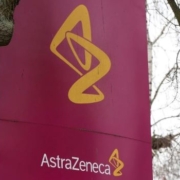Checkpoint inhibitor pioneer James P. Allison, who won the 2018 Nobel Prize in Medicine, will helm a new research and innovation hub at The University of Texas MD Anderson Cancer Center that is focused on developing new immunotherapy breakthroughs in oncology.
AstraZeneca reported what the company called “unprecedented survival,” in the HIMALAYA Phase III trial using a single priming dose of tremelimumab added to the anti-PD-L1 checkpoint inhibitor Imfinzi (durvalumab) compared to Bayer’s Nexavar (sorafenib) as a first-line treatment for unresectable hepatocellular carcinoma (HCC) patients who had not received previous systemic therapy and as a result, were not eligible for localized treatment.
AstraZeneca announced positive high-level data from the HIMALAYA Phase III trial of a single, high priming dose of tremelimumab plus Imfinzi (durvalumab) in patients with unresectable hepatocellular carcinoma (HCC), or liver cancer, who had not had previous systemic therapy and were not eligible for localized treatment.
Xilio Therapeutics is evaluating the company’s tumor-selective anti-CTLA-4 antibody XTX101 with Merck’s programmed death receptor-1 therapy Keytruda (pembrolizumab). The clinical trial – which will be conducted by Xilio – will assess XTX101’s safety and efficacy as a monotherapy, as well as in combination with Keytruda, in solid tumors.
Three biopharma companies recently shuttered their clinical programs after either their drug compounds failed clinical trials or interim futility analysis suggested they were unlikely to meet their clinical endpoints.





